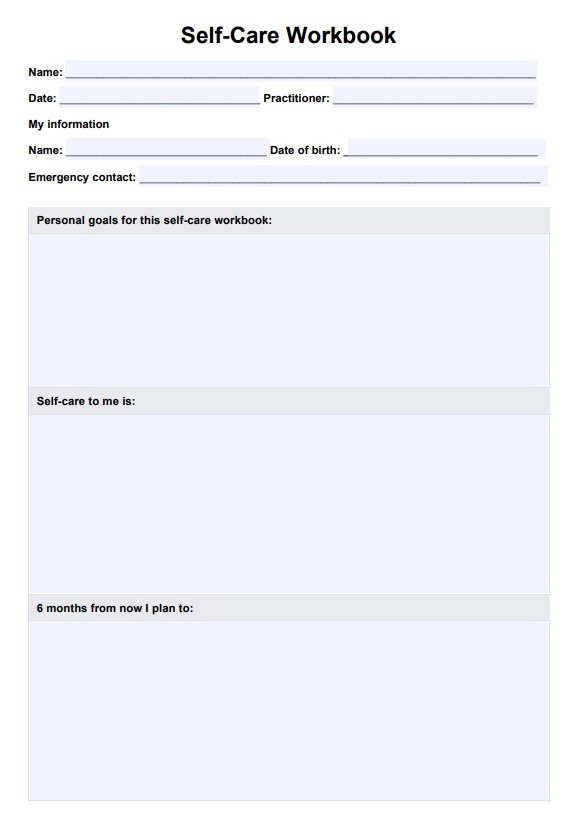Self-care is the intentional act of providing adequate time to enjoy a variety of activities. These activities can support the physical, mental, emotional, social, and spiritual self.

Self-Care Workbook
Click here to discover Carepatron's Self-Care Workbook and how to implement it into your practice to support your patients.
Use Template
Self-Care Workbook Template
Commonly asked questions
When we don't take time to nurture ourselves, we often burn into overdrive. Self-care is essential to ensure all aspects of well-being are taken care of. It can also prevent psychological concerns and support a positive living environment.
The best way to incorporate self-care is to plan time within your client's busy life. As a practitioner, you can use tools like this workbook to support your client's journey with time management and self-care ideas.
EHR and practice management software
Get started for free
*No credit card required
Free
$0/usd
Unlimited clients
Telehealth
1GB of storage
Client portal text
Automated billing and online payments











